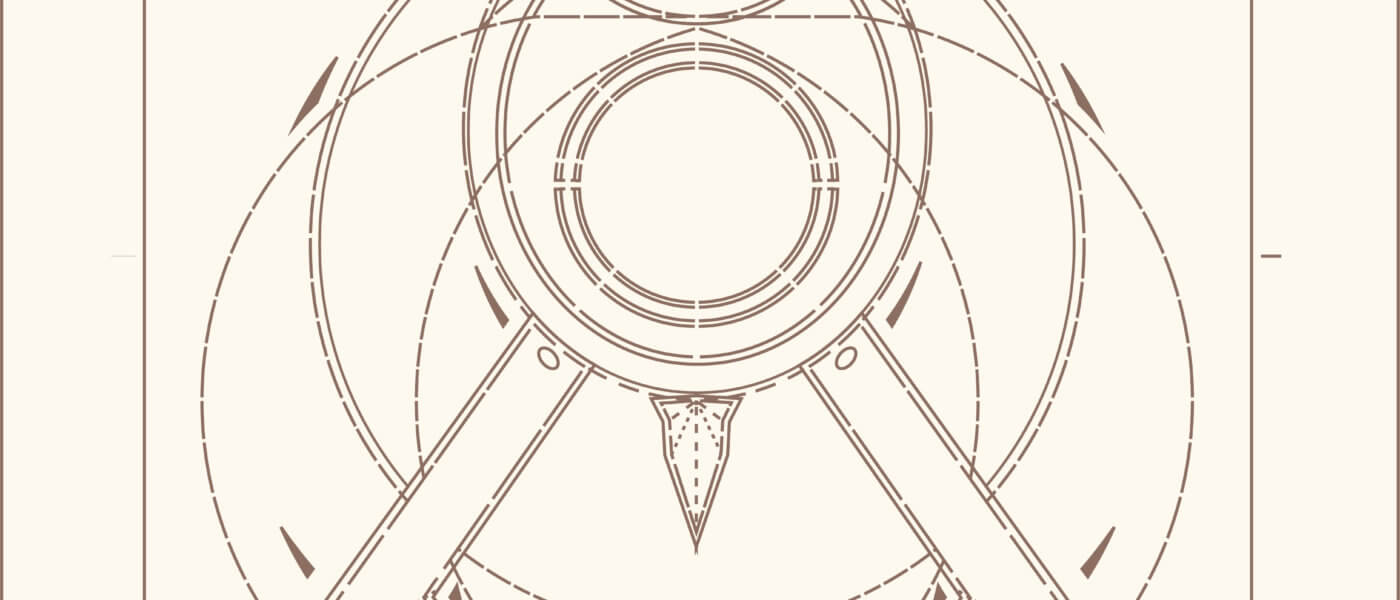
Event Details
Exhibition Dates: Friday September 4 – Friday October 9, 2020
Opening Reception: Friday September 4, 5-8 pm
Visitors must bring and wear a mask while inside the building. Be prepared to wait outside the building if space is not immediately available upon your arrival. There will be no food & drinks at receptions until otherwise noted. Please review our COVID-19 procedures in full here.
Virtual Artist Talk: Saturday September 19, 2pm
This artist talk will be delivered via Zoom. ASL interpretation will be provided for this event.
These events are free to attend and open to the public.
– – – – – – – –
Solar Noon is an installation of large silkscreened, laser-cut prints including pop-out designs that fold into paper sculptures, a series of offset printed die-cut posters, and a video animation. In this work, the subject of solar energy technology serves as an interface between Leigh Bridges’ ongoing investigation of atmospheric landscape, light, and colour in painting and experiments in use, imagination, and improvisation in design. Employing modes of production which range from highly precise commercial fabrication to intuitively composed hand-silkscreened monoprints, the work aims to express a love of material and to create dialogue between refined structural processes and the spontaneous agency to make, build, and connect. The exhibition synthesizes approaches central to design and painting through printmaking, framing, and reflecting landscape via overlays of geometric form to connote a practical, intimate, and evolving relationship between user and environment.
Leigh Bridges is an artist whose interdisciplinary practice builds on the legacies of romanticism and modernism to explore the possibilities surrounding DIY designed technologies in relation to idealism and use. Bridges lives and works in Winnipeg and holds a Master’s degree in Fine Arts from the University of Victoria. Bridges has exhibited widely in Canada and Europe, most recently at AGAlab Atelier Grafisch Amsterdam, Plan Z (Miguel Hernández University, Altea Spain), Arebyte 17 with Become Become (London UK), Paul Petro Contemporary (Toronto), and Gallery Simon Blais (Montreal). Her work is part of several private and corporate collections, including Bank of Montreal, Toronto Dominion Bank, and Global Affairs Canada. Bridges holds a position of Assistant Professor of Art and Design at the University of Manitoba. She is represented by Paul Petro Contemporary in Toronto.
The artist gratefully acknowledges the support of the Canada Council for the Arts and financial assistance provided by the Manitoba Arts Council.
For more information about Leigh Bridges, please visit www.leighbridges.com.
Artist Statement:
The starting point for Solar Noon is a series I completed while in residence at AGAlab (Amsterdam’s Grafisch Atelier) in April 2019. While there, I created eight large silkscreened, laser-cut prints which I imagined would represent landscape “reflected” on solar panels and also connect with ideas of atmosphere and light developed in my painting practice. I intuitively combined my own bitmapped landscape photographs and colour blends with linear schematics, some of which were popped out and folded into sculptures. I was interested in the optical pleasure of physically layering the ink, producing unexpected results in composition and colour while enjoying material idiosyncrasies. The act of printing, transporting large screens and moving physically around the work, as well as the optical resonance built up was also critically important to the sense of specificity implicit in these monoprints.
I developed the Energy Collector die-cut posters using a more meticulous, almost wholly digital process while referencing instructional manuals and commercially conceived off-the-grid technologies. I’ve framed these “prototypes” as a small edition and have presented the offset printed piece as a stack in the gallery, with some available for viewers to take. With this work, I’m interested in “design dissemination,” exploring the more widespread distribution possible with commercially printed multiples.
Finally, the Solar Array animation picks up on the unfolding and installation of the imagined technology, once again employing “instructional poetics” to show the array’s solar alignment and the sun’s stoic movement across the sky. Here I was interested in the atmospheric details, the small sounds, and the shifting lighting conditions. This work engages with romantic imagery while pondering the ameliorative potential of design and technology, framing the landscape while suggesting an intimate and evolving connection with the environment.